
Cooking with the wrong fats
Cook with olive oil — but only for certain foods. Butter is back — but is butter better? And then there’s coconut oil — actually, there are many reasons not to cook with coconut oil. So what are the healthiest fats for cooking? Maggie Michalczyk, registered dietitian in Chicago, recommends doing your homework before buying a jumbo jug of one particular oil and using it for everything. “These oils have different smoke points — that’s the temperature at which they begin to burn — and once they start smoking, the fat breaks down and they can release harmful free radicals into the air,” she says. Oils with high smoke points that are great for high-heat cooking include avocado oil (refined), almond oil, canola oil, grapeseed oil, peanut oil, safflower oil, sesame oil, and sunflower oil. Regardless of smoke point, you’ll want to limit soybean and corn oils, which studies have linked to diabetes. Also, keep portions of oils in check when cooking to prevent additional calories (most serving sizes are two tablespoons).
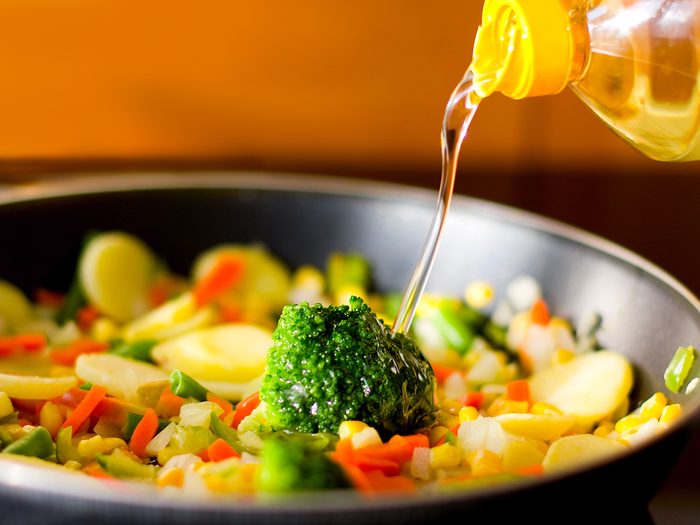
Overheating healthy oils
Oils with low smoke points are better for salad dressings or adding to already cooked foods — but not for high temp cooking. “Certain oils, like olive oil and coconut oil, contain nutritional compounds that can be destroyed when heating to high temperatures above their smoke points,” explains Ben Roche, Michelin-star chef and director of product development at Just. For general cooking at home (sautéing, frying, roasting), he recommends using a neutral oil, like grapeseed or sunflower. For flavoring cold sauces and drizzling over prepared food, he suggests using extra virgin olive oil or flaxseed oil to preserve flavor and nutrition. Just make sure you’re not buying fake olive oil.

Frying your food
It might taste downright delicious, but consuming deep-fried food on the regular can be deadly. “The act of frying turns otherwise healthy foods, like vegetables and lean meats, into unhealthy, trans-fat-laden treats,” says Jeanette Kimszal, RDN, registered dietitian nutritionist. Additionally, consumption of fried foods has been linked to a myriad of health problems, such as heart disease and diabetes. If you can’t shake your fried-food obsession, Kimszal suggests purchasing an air fryer. This device does not require any oil to cook your food, so you can still enjoy your favorite foods without all the trans fat that will hurt your health.
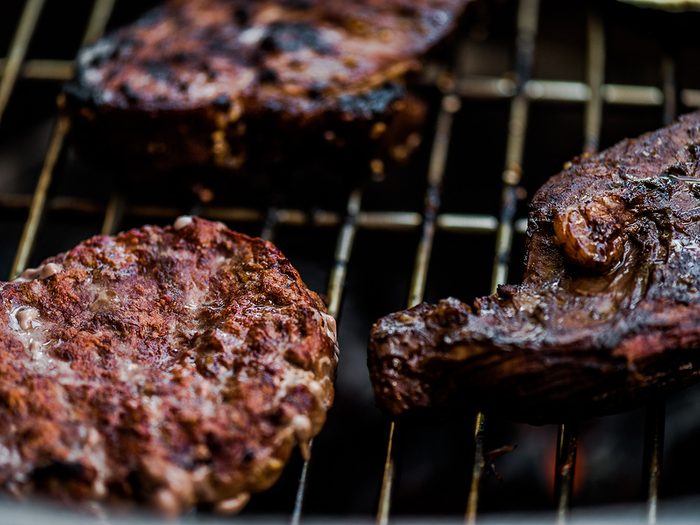
Charring your meat
While raw or undercooked meat can pose health hazards, so can overcooked or charred meats. “Cooking meats above 300°F, which usually results from grilling or pan frying, can form compounds called HCAs (heterocyclic amines) and PAHs (polycyclic aromatic hydrocarbons), that may be harmful to human DNA,” warns Christen Cupples Cooper, EdD, RDN, assistant professor and founding director of the Nutrition and Dietetics Program at the College of Health Professions at Pace University. “Some research suggests that when metabolized, these compounds may activate enzymes linked to cancer risk.” While the research is limited, Cooper believes there’s enough evidence to recommend reducing your exposure to these chemical compounds. “Avoid cooking foods for any length of time over an open flame or hot metal surface, turn meat frequently during cooking, and cut away charred portions of meat,” she says.

Using the wrong cookware
Just like it’s important to know what ingredients are in the food you eat, you should also know what ingredients are used to create the cookware you use. “Nonstick cookware is one of the biggest culprits when it comes to toxicity,” warns Raul Serrano, DC, doctor of functional medicine in Palm Harbor, Florida. “Teflon, which is practically everywhere (cookie sheets, muffin pans, and frying pans), contains a man-made chemical called perfluorooctanoic acid (PFOA or C8).” Some studies have found links between PFOA exposure and cancer development, reproduction, and liver dysfunction. Serrano recommends healthier alternatives, such as cast iron, glass, ceramic, and stainless steel.
Here are some helpful tips for organizing your kitchen and home.
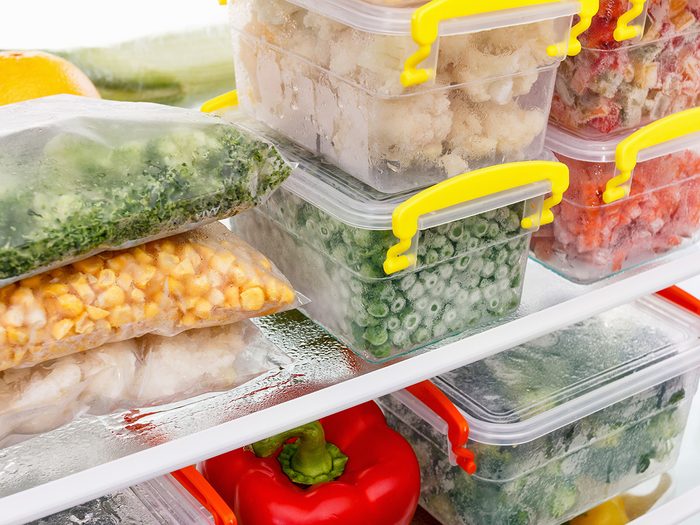
Storing your leftovers in plastic containers
In the same vein of being careful when selecting your cookware, you always want to take precaution when purchasing your Tupperware. “Some popular storage containers on the market contain bisphenol-A (BPA), which studies have shown that once ingested, mimic estrogen in our bodies,” says Dr. Serrano. “High levels of estrogen result in weight gain, irregular menstrual cycles, headaches, and higher risk of certain cancers.” Instead, he recommends swapping out plastic containers for glass containers.

Getting too much salt
If there’s one flavor Americans love in their food, it’s salt. In fact, about 90 percent of people living in the United States over the age of two consume too much of the stuff, according to the Centers for Disease Control and Prevention (CDC). The American Heart Association recommends 2,300 mg of salt per day, which is about a teaspoon; the average adult is consuming around 3,592 mg. “In some cases, our taste buds may be desensitized to the flavor of salt,” says Michalczyk. The problem is all the sodium packed into prepackaged foods: According to the American Heart Association, 70 percent of the sodium in the average American diet comes from processed food.

Adding too much sugar
Did you know that the average American consumes over 150 lbs of sugar each year? That’s more than five times the recommended amount. “Desserts are an obvious culprit, but sugar is often hiding in unsuspecting foods, such as dressings, marinades, and sauces,” warns Maya Krampf, founder of Wholesome Yum. “Natural forms of sugar, like honey and maple syrup, are slightly better, but they still spike insulin levels in a similar way as refined sugar.” Instead, she recommends taming your sweet tooth by serving up savory, liberally seasoned dishes when preparing meals and opting for fruit-centric desserts whenever possible. In recipes calling for sugar, Arianne Perry, wellness entrepreneur and co-founder of Sweet Defeat, recommends halving the amount called for. “I do this in baked goods, like banana bread, and no one can taste the difference — it’s so subtle!”
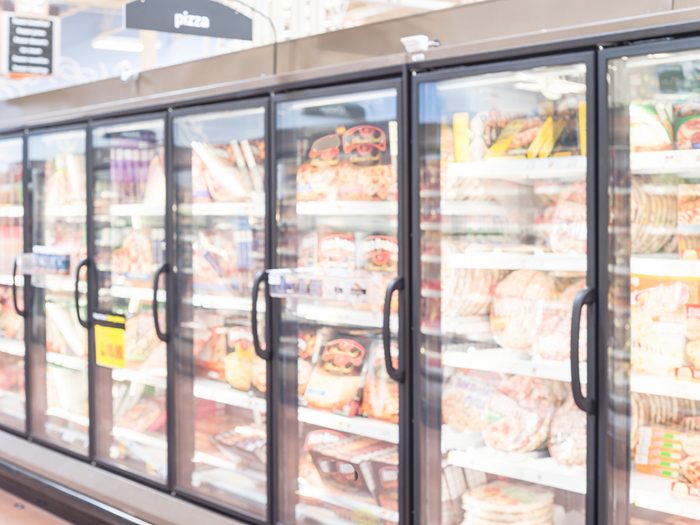
Relying on processed frozen food dishes for weekday meals
It’s tempting to turn to a frozen meal that promises to be ready for you in just three minutes in the microwave, especially after a long, stressful day of work. But oftentimes, these foods contain a slew of preservatives and chemicals that are hazardous to your long-term health. Remember that humans have only been exposed to these for a very short time in evolutionary history,” says Krampf. “Not only do processed foods leave less room in your diet for healthier foods, but they are loaded with ingredients like artificial preservatives, refined sugar, and white flour.” Instead, she recommends opting for whole foods, like vegetables, fruits, eggs, and meat whenever possible. And, if you must buy something in a box, choose one with ingredients that you can at least understand and pronounce.

Drinking a glass of wine while cooking
Unless you’re sipping on a full stomach, experts warn against having that glass of wine while stirring your family’s meal, as relaxing as it might be. “Drinking on an empty stomach can lead to an unhealthy spike in blood sugar,” says Michalczyk. “Plus you may notice that the longer you wait to eat after the initial drink, the hungrier you will feel, which may lead you to overdo on whatever food you see next.” Or the opposite can happen: Drinking alcohol before a meal might suppress your appetite, causing you to miss out on calories and nutrients your body needs.
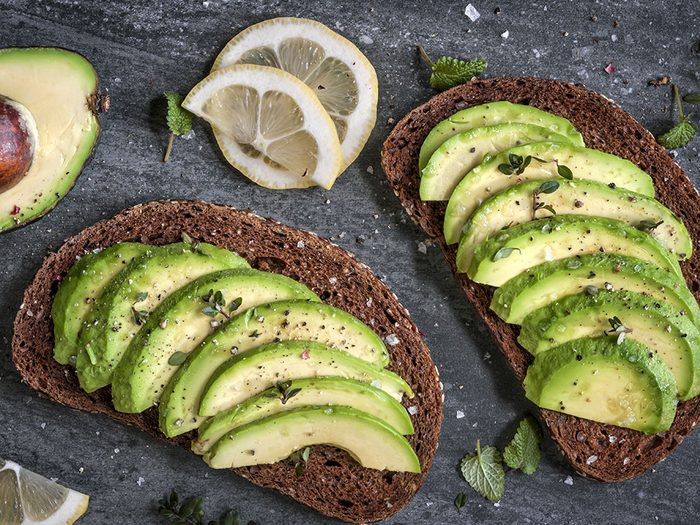
Using “low-fat” everything you can find
There was a time when nutrition experts believed that fat was the enemy, but, thankfully, that time has come and gone. We’ve since learned that there is good fat and bad fat: Anything fried isn’t too great, but avocados and fish are full of good fat (omega-3-fatty acids). Krampf warns that not adding enough fat when cooking is a mistake. “In addition to being an energy source and protection or organs, fat is used in cell membrane function, start reactions that affect the immune system and metabolism, and allow for absorption of vitamins A, D, E and K,” she says.
